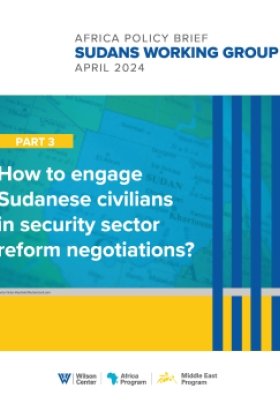21st Century Collective Security
American foreign policy was largely driven by collective security during the Cold War. Former Congressman Lee Hamilton argues for an updated collective security for the 21st Century.
The Bush Administration often responds to critics of its Iraq policy by pointing to Japan and Germany as examples of democracy rising from the ashes of totalitarianism and war. As we try to move forward on a host of issues, we should consider what made those successes possible.
The accomplishments of Japan and Germany depended in part upon the framework of "collective security" that guided American foreign policy from World War II through the Cold War. The concept is the United States is stronger, and the world more secure, when American power is integrated with other countries, coalitions, and institutions on behalf of common goals. So we helped create NATO, to pool our military might to defend Europe; the U.N., to provide a peaceful forum for international dialogue, cooperation, and law; the World Bank, International Monetary Fund, and World Trade Organization, to spread trade, markets, development, and financial stability; and countless other bilateral and multilateral agreements.
The world has changed a great deal since the Cold War. We worry about nuclear terrorism instead of nuclear war. Conflicts are often fought within nations instead of between nations. China and India are joining the ranks of the great powers. Global warming, energy demand, and epidemic disease challenge all peoples, just as globalization makes nations economically interdependent as never before. The surest way to overcome a world of disruptions remains American leadership in a global system of collective security.
How can we forge collective security for the 21st century? By using our preeminent power to build and support international consensus. We should approach emerging powers like China and India as partners, not adversaries. We should reform 20th century institutions to meet the challenges of the 21st – so NATO can help provide security beyond Europe's borders; the U.N. is better able to prevent conflict, keep peace, and facilitate action against global challenges; and international financial institutions and trade agreements create more winners and fewer losers. New partnerships and coalitions must be forged to combat common threats like drug production, terrorism, and weapons proliferation.
This is hard work. It means developing relationships, setting goals, and implementing strategies amongst nations with unique interests and traditions. The United States stands for freedom, justice, opportunity and security. Now, as after World War II, many people share those goals. Our task is standing by these deeply held beliefs, rallying others in support of them, and persuading individuals, institutions and nations to forge common approaches in pursuit of these common goals.
Consider the alternative of isolation. If the United States retreated from the world, how could it protect the American people from terrorists who plot in foreign lands, while ensuring that technology like nuclear power is used for good and not ill, that trade is both free and fair, and that shared resources like our oceans are sustained and not squandered? As the world's most powerful nation, and the primary architect of the international system, the United States cannot protect its people or interests sitting on the sidelines. We must lead.
Nor should we eschew collective security for unilateral action. The United States is unique because we have the power to act alone in the world. Yet when we act alone, we place an enormous burden on our people; cost ourselves international legitimacy badly needed for our policies to sustain and succeed; turn much of the world against us; and deny ourselves the resources and capabilities of friends and allies. Do we want the U.S. to stand alone to combat threat after threat, tyrant after tyrant? Do we want a world in which other nations form blocs to balance American power rather than joining with it? As Richard Haas, a former senior State Department official, puts it: the U.S. does not need the world's permission to act, but it does need the world's support to succeed.
We are at a pivotal moment. The daunting challenges of the next century are coming into focus. Within those challenges are embedded opportunities. If we build collective security for the 21st century, the world can reach new frontiers of peace and prosperity. The very elements of modernity that challenge us – the rapid spread of technology; shifts in the global economy; strains on the energy supply; and the mass empowerment of individuals – can be harnessed for the common protection and benefit of all Americans.
That former adversaries like Japan and Germany are now democratic allies is a living monument to what American foreign policy can help achieve. Our ability to build upon the lessons of the last sixty years will determine whether the United States, and the world, can achieve such success through collective security over the next sixty years.









